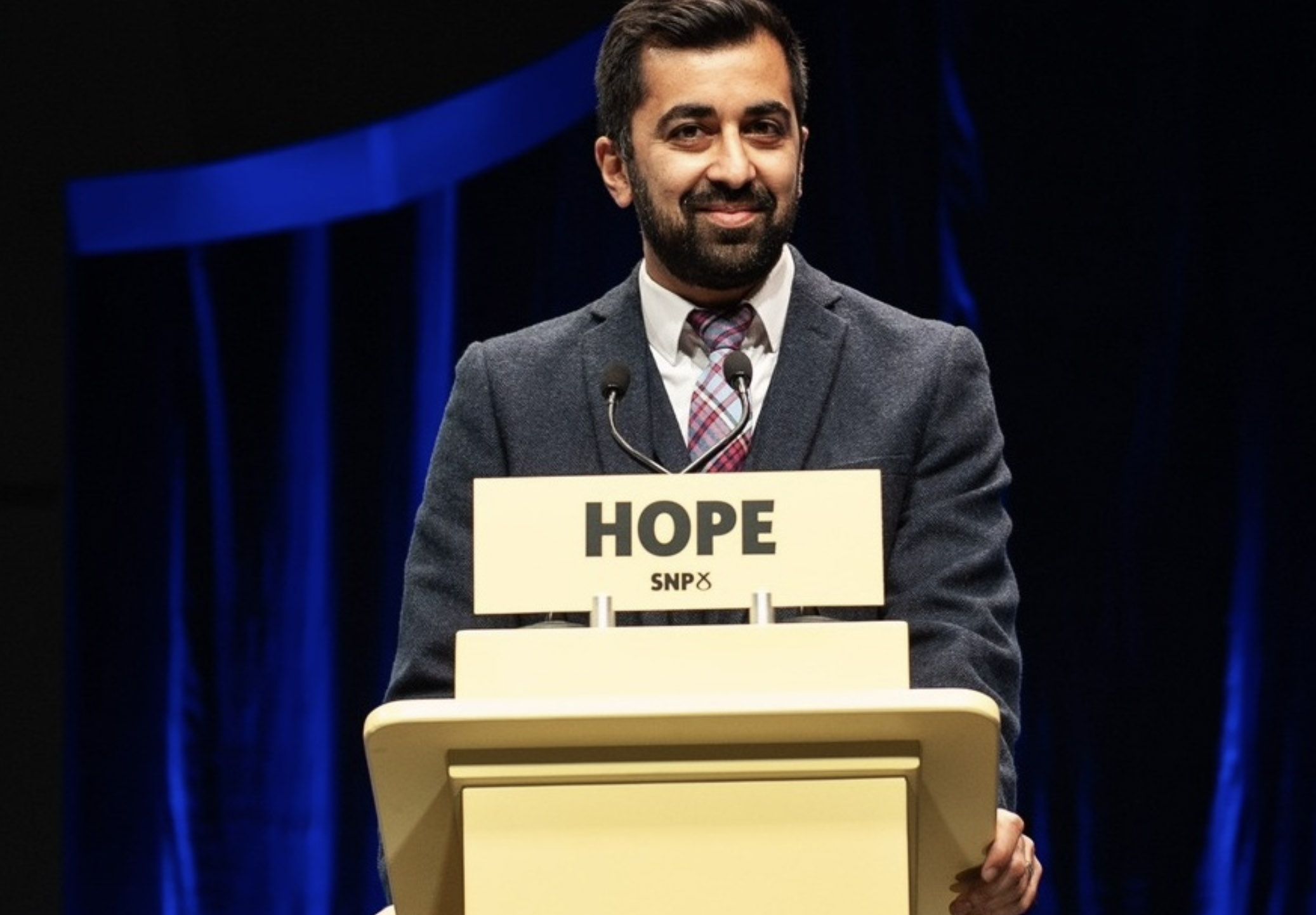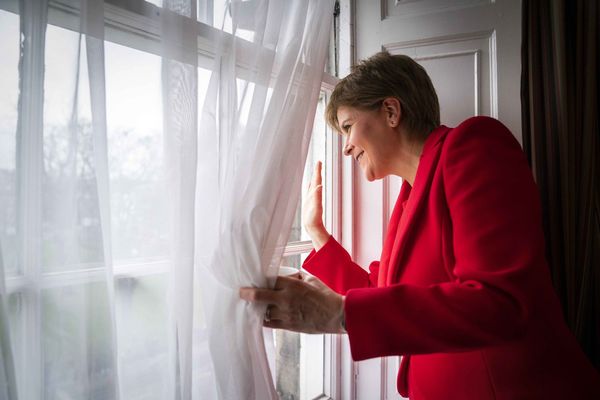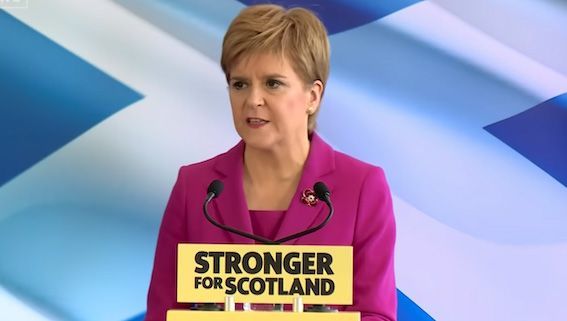INEVITABLE. It is amazing how often this word crops up when people talk about the future of Scotland.
There are those, for example, who think independence is a matter of “when not if”, that the current British state is a dead man walking.
Others are equally certain that the SNP will fail to “break up Britain”, that Scots will tire of “separatism” and “divisive nationalism”.
They are a confident lot, Scotland’s partisans. Or at least they can be.
Me? I have never paid much heed to the Mystic Megs of political commentary. My reporting kit, as the awful old journalist line goes, did not come with a crystal ball.
But I think it is worth talking about predictions about Scotland’s future. Because, my goodness, there are a lot of them around at the moment. How come?
Well, because the main pro-independence force, the ruling SNP, is in big trouble. Its once totemic leader, Nicola Sturgeon, has quit. Her husband, the party’s former chief executive Peter Murrell, is facing a criminal investigation in to SNP campaign finances.
Their home on the edge of Glasgow has been searched. Police put up a forensic tent in their suburban garden, sparking jokes about CSI Uddington.
Then officers towed a luxury motorhome from the driveway of Mr Murrell’s 92-year-old mother.
"CSI: Uddingston" has one heck of a series finale. https://t.co/641CpDREcA
— alexmassie (@alexmassie) April 7, 2023
The SNP’s enemies, unionist and nationalist, smell blood in the water. So does the press. Nobody is claiming to know how the probe will end for Mr Murrell, who last week was arrested but released without charge. But foes of Ms Sturgeon are confident times will be hard for her successor as first minister, Humza Yousaf.
Scotland is on track to be the first democratic western European nation with a Muslim leader, after the pro-independence Scottish National Party on Monday elected Humza Yousaf, the country’s 37-year-old health secretary, as its top official. https://t.co/igzplUOULH
— The New York Times (@nytimes) March 27, 2023
Mr Yousaf is – you guessed it – predicted to fail by his opponents. Indeed, his downfall is described as “inevitable”.
Hard to find the words to express just how much of an honour it is to lead our country.
— Humza Yousaf (@HumzaYousaf) March 31, 2023
I will be a First Minister who will govern for all of Scotland, your priorities will be my priorities. I will work tirelessly to serve you, the people of Scotland. I hope I can do you proud. pic.twitter.com/w7z12B0QBT
The 37-year-old Glasgow MSP took the reins of power last month after a bitter and bruising SNP leadership election. He only narrowly beat his opponent, Kate Forbes, a 32-year-old former Finance Secretary. It was quite the fight.
Ms Forbes is a broadly pro-business Highlander, an evangelical Presbyterian from the little known Free Kirk who opposes gay marriage and generated headlines during the campaign by suggesting that sex out of wedlock was wrong.
Delighted to appoint my Cabinet & Ministerial team, we will work to deliver a radical, ambitious & progressive policy agenda for the people of Scotland.
— Humza Yousaf (@HumzaYousaf) March 29, 2023
First time Cabinet has more women than men.
We promise to work in the interests of all of Scotland.https://t.co/6VzGuuBuyn pic.twitter.com/hMnEMFwq20
Mr Yousaf is a left-wing, progressive privately educated Muslim from Glasgow who was very much pitched to the party as a “continuity candidate”, a supporter of the legacy of former SNP leader Nicola Sturgeon.
There is little doubt among Scotland’s commentators that Mr Yousaf had the tacit support of the party machine, including Mr Murrell, who resigned mid-campaign.
And yet he still nearly lost to a candidate who rejected chunks of the SNP’s record in government and some of its core values, bar independence. Ms Forbes is not in his cabinet. She turned down what she saw as a demotion.
Kate Forbes says being finance minister was a job she knew she “absolutely loved and could do well”.
— Holyrood Sources (@HolyroodSources) April 3, 2023
Here she explains - in her own words why - she’s no longer in the cabinet: pic.twitter.com/OtDIn4nJRF
Mr Yousaf, despite his relative youth, has been around for a while, in government for a decade under Ms Sturgeon and her predecessor Alex Salmond.
His career has almost become an internet meme for failure. A couple of years ago a video of the then Health Secretary toppling off a mobility scooter as he rushed through the corridors of the Scots parliament, Holyrood, went viral.
Humza Yousaf falls off knee scooter while recovering from badminton injury 🏸 pic.twitter.com/jy2sHB39Aq
— Manish Vij (@vijmn) March 28, 2023
Jackie Baillie, a veteran Labour MSP, said Mr Yousaf was the worst Health Sec in the history of devolution and would be the worst FM too. Ouch. Scottish politics jokes are terrible: the new SNP leader is routinely labelled Humza Yousless.
Jackie Baillie (@jackiebmsp) calls Humza Yousaf's cabinet 'a bunch of b rate politicians'.
— Representing Border (@ITVBorderRB) March 29, 2023
The @ScottishLabour MSP says the SNP 'don't have a mandate from the country' and calls for an election. pic.twitter.com/QY9KkBQQG6
How fair is all of this? To be honest, I really do not know. I am not remotely qualified to judge the competence and abilities of ministers.
Neither, of course, are most of the punters and pundits who are declaring Mr Yousaf to be a dud. What is true is that the NHS in Scotland is suffering from a whole series of problems. How many, if any, of these can be blamed on one guy? Pass.
Mr Yousaf is facing what politics and media nerds might call a “failure narrative”. This is not just a story being told by those opposed to his ultimate aim, independence. The press, including outlets that are not hostile to the SNP, is on his case.
So are some of the most fervent nationalists inside the SNP and out. For them, Mr Yousaf and Ms Sturgeon “failed” to deliver independence because they did not focus on it enough.
The “failure narrative” and CSI Uddingston story dominate the media.
Polls make grim reading for the new First Minister. There are “predictions” – that word again – that the SNP will shed seats at Holyrood and Westminster to Labour.
Good morning Scotland - here's your Saturday Scotsman. Our exclusive poll is the top story today - lots more inside, from thought-provoking opinion to previews of the weekend's sporting action. And an excellent 50% off subscription offer! Enjoy your weekend :) pic.twitter.com/UjcBTuXe1O
— Neil McIntosh (@nmcintosh) April 1, 2023
Mr Yousaf does not have to worry about Scottish elections for a while – none are scheduled until 2026. But the latest survey suggests that the SNP might fail to re-secure the pro-independence majority that has been in place since 2011. And that includes support from the Greens. It is hard to over-state what a big deal that would be.
Scotland looks like a nation in flux right now. And it is. But it is also – to use an old buzzword – a country which is “stuck”.
We have a new leader. We have polls suggesting that leader is not popular and that his once dominant party is losing ground.
Yet there is remarkably little change in the big numbers that show Scotland almost evenly split on what has been the defining issue of our politics. Support for independence is holding up, at 48 per cent according to The Scotsman.
In other words, there are Yessers who are willing to vote against Yes parties. That makes some sense: there is no immediate prospect of an independence referendum. And sovereignty is behind the economy and the NHS in any list of voter priorities.
So here are the big questions. Can Labour lure more Yes-minded Scots away from the beleaguered SNP? And what do they have to do to keep these voters? Or will Mr Yousaf and his team shake off the scandals and the probes and change their story from one of failure to success?
How will all this play out? I would only say this: nothing is ever inevitable.








